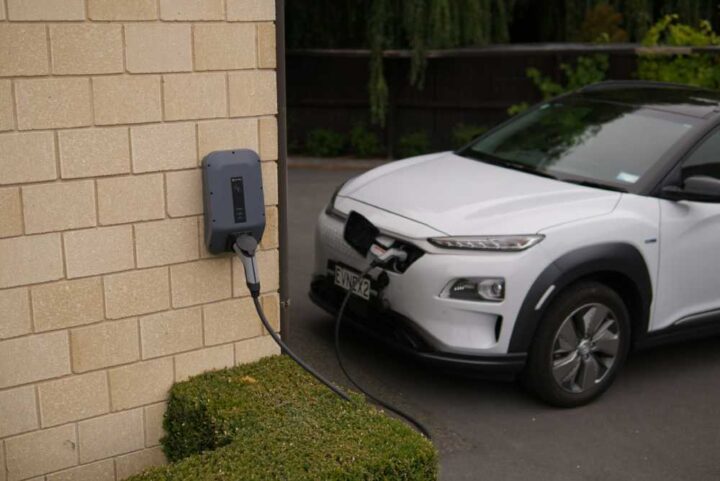The Future of Electric Vehicles and Their Impact on Everyday Travel
The rise of electric vehicles (EVs) is transforming the automotive industry and our approach to transportation. As innovation rapidly advances, more people are attracted to owning EVs, reflecting a broader movement toward green living. As technological advancements evolve, more individuals are choosing to browse our inventory of innovative vehicles, blending sustainability with style.

These vehicles offer numerous advantages over traditional combustion engines, making them increasingly popular. This article explores the key factors driving EV popularity, their benefits, current challenges, and their future impact on commuting. Let’s examine how these technological innovations are reshaping our world.
Driving Forces Behind the Rise of Electric Vehicles
Environmental concerns, consumer demand for sustainable and cost-effective transportation solutions, and economic incentives drive the rise in electric vehicle adoption. Climate change is a significant worry, raising awareness of the negative impacts of fossil fuels. Governments worldwide are enacting regulations to drive the shift towards zero-emission vehicles.
Consumers are also seeking modern conveniences while being mindful of the environmental effects. Economic incentives such as tax reductions, rebates, and credits encourage more people to use electric vehicles.
Technological Advancements in EVs
The fast use of electric cars (EVs) has considerably improved battery technology, improving range and shortening charging periods. Advancements in lithium-ion and solid-state batteries have made EVs more accessible to a broader audience.
The expansion of charging infrastructure ensures ample recharge opportunities for drivers during longer journeys. Integrating innovative technologies like GPS systems and self-driving capabilities further enhances the user experience, making EVs a cornerstone of modern, connected lifestyles.
Benefits of Using Electric Vehicles
Electric vehicles (EVs) provide numerous benefits beyond individual ownership, including cleaner air, reduced greenhouse gas emissions, and improved public health. They also offer long-term economic benefits due to lower fuel and maintenance costs.
EVs contribute to energy independence by reducing reliance on foreign oil and promoting domestically sourced renewable energy. Despite initial costs, these benefits make EVs crucial in combating environmental challenges and promoting sustainable transportation.
Challenges and Considerations
Electric vehicles have potential but face high initial costs, range anxiety, and infrastructure development. Despite advancements in battery life and charging infrastructure, consumers still express concerns about battery life running out before reaching a charge point.
Policymakers and industry leaders must ensure sufficient charging stations are available and accessible to alleviate consumer concerns and foster confidence in EV technology. Additionally, incentivizing renewable energy sources is crucial for adequate vehicle power.
How Electric Vehicles Could Change Daily Commutes
Electric vehicles are transforming urban planning and lifestyle choices, with cities like Copenhagen and Amsterdam exemplifying this. These cities have successfully integrated EVs with public transportation and pedestrian-friendly infrastructure, marking a new era of urban logistics.
As EV charging infrastructure expands, suburban and rural settings may also experience changes. This technology offers greater flexibility, reduced dependence on public fuel, and personalized commuting solutions.
The Global Push for EV Adoption
Government and industry initiatives, including subsidies, charging infrastructure investments, and stringent emissions regulations, drive the adoption of electric vehicles (EVs). The automotive industry also invests in R&D and innovation to promote sustainable practices, aiming for a greener, technologically enlightened future. This shift towards sustainable practices is a permanent and comprehensive shift towards a greener future.
Takeaways
Electric vehicles (EVs) are revolutionizing the transportation landscape, fundamentally altering how we navigate our daily commutes, consume energy, and approach environmental responsibility. The rapid advancements in charging infrastructure, such as the expansion of fast-charging stations and the integration of charging solutions in urban and suburban areas, significantly enhance the convenience and practicality of owning and operating an EV.
Technological innovations, including improved battery efficiency and extended driving ranges, make these vehicles more accessible and appealing to a broader audience.
As cities continue to develop more innovative transportation networks, the adoption of EVs is likely to surge. This shift will be reinforced by government policies promoting green energy initiatives, including tax incentives for EV purchasers and investments in renewable energy sources for charging stations. Electric vehicles are predicted to proliferate on our roads due to these elements, which will help cut greenhouse gas emissions and clean up the air.
In the coming years, as technology continues to evolve and infrastructure support grows more substantial, the presence of EVs is poised to reshape our everyday streetscapes. We will see neighborhoods designed with electric vehicle charging stations integrated into public spaces, workplaces, and residential areas, fostering a culture of sustainable transportation. Ultimately, the widespread adoption of EVs promises to minimize ecological footprints, creating a future where mobility and environmental stewardship coexist harmoniously.


